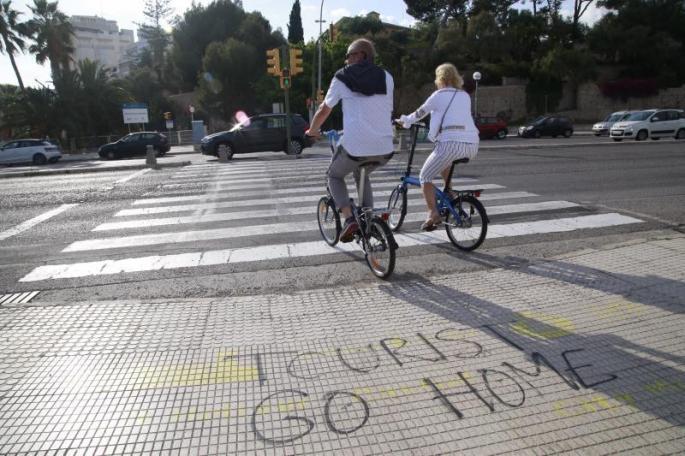Mallorca, Spain – The heated debate over illegal holiday rentals on the island of Mallorca has taken center stage once again, following claims that as much as forty per cent of the holiday rental market operates outside the law. These figures, which have sparked concern among local authorities and residents alike, are now being challenged by Habtur, the island’s official association of tourist apartment owners. In a clash that highlights the complexities of Mallorca’s booming tourism sector, Habtur disputes the accuracy of the forty per cent estimate, urging for a more nuanced understanding of rental compliance and regulation enforcement. This controversy sheds light on the ongoing struggles to balance tourism growth with legal frameworks and community interests in one of Spain’s most popular holiday destinations.
Illegal Holiday Rentals Raise Concerns Over Tourism and Local Housing Markets in Mallorca
The debate surrounding holiday rentals in Mallorca has intensified, with some estimates suggesting that up to 40% of these rentals operate illegally. Critics argue that such unregulated accommodation severely disrupts the balance of local housing markets, driving prices upward and reducing availability for residents. This unchecked proliferation not only strains community infrastructure but also threatens the island’s charm and appeal as a sustainable tourist destination. Local authorities have expressed growing concerns about enforcement challenges and the need for clearer regulation to safeguard both tourism and housing sectors.
However, Habtur, a prominent association representing licensed holiday rental owners, strongly disputes the 40% figure, calling it an exaggeration that unfairly tarnishes the industry’s reputation. They emphasize that the majority of rentals comply with regulations, contributing significantly to Mallorca’s economy and tourism growth. Below is a comparison highlighting the contrasting perspectives:
| Aspect | Critics’ Viewpoint | Habtur’s Response |
|---|---|---|
| Illegal Rental Estimate | Approximately 40% | Significantly lower, not supported by data |
| Impact on Housing | Reduces availability, inflates prices | Licensed rentals encourage regulated market |
| Tourism Effect | Unsustainable and damaging | Vital for economic growth and job creation |
| Regulatory Compliance | Widespread non-compliance | Majority comply and promote transparency |
- Authorities are urged to bolster inspections and improve legal frameworks.
- Local communities seek greater protection from housing shortages and price surges.
- Industry stakeholders call for balanced approaches that support both tourism and residents.
Habtur Challenges Claim That Forty Per Cent of Rentals Are Illegal Citing Industry Data and Regulations
Habtur, the leading association representing Mallorca’s holiday rental sector, has strongly challenged recent assertions that up to forty per cent of the island’s short-term rentals operate without proper authorization. According to Habtur, these figures are not only exaggerated but also fail to consider the comprehensive regulatory frameworks and compliance efforts already established within the industry. They argue that much of the data cited lacks corroboration from official registries maintained by local authorities, creating a misleading narrative that unfairly stigmatizes legitimate property owners and operators.
To clarify their position, Habtur highlighted key regulatory elements that ensure rental legality, including:
- Mandatory registration through the Balearic Tourist Registry, which verifies compliance with safety and tax obligations.
- Regular inspections conducted by municipal authorities to enforce existing laws.
- Transparent tax reporting by owners as part of the region’s economic oversight.
Below is a summarized comparison of rental compliance according to Habtur’s data versus the disputed industry report:
| Category | Habtur Data | Disputed Claim |
|---|---|---|
| Registered Rentals | 75% | 60% |
| Unregistered Rentals | 25% | 40% |
| Monthly Inspections Average | 20,000 | Not Specified |
| Reported Violations | 8% | Not Differentiated |
Experts Recommend Stricter Enforcement and Transparent Licensing to Resolve Holiday Rental Disputes
Industry experts emphasize the urgent need for a rigorous crackdown on illegal holiday rentals to restore balance in Mallorca’s tourism sector. They argue that enforcement agencies must enhance coordination and increase monitoring efforts, employing modern technology like geolocation tracking and real-time permit verification systems. According to specialists, transparent licensing mechanisms are crucial; a publicly accessible registry would allow authorities and tourists alike to verify the legitimacy of holiday accommodations instantly, thereby reducing ambiguities that currently fuel disputes. Key recommendations include:
- Comprehensive audits of existing licenses to identify unauthorized rentals
- Clear criteria and faster processing for legal holiday rental applications
- Community reporting channels integrated with municipal enforcement teams
To illustrate the proposed framework, the table below outlines the ideal licensing process against current challenges faced on the island, showcasing the disparities that have led to escalating contention between stakeholders. Experts insist that closing these gaps will not only safeguard residents’ quality of life but also promote sustainable economic growth by rebuilding trust between local authorities, landlords, and tourists.
| Aspect | Current Situation | Recommended Approach |
|---|---|---|
| License Verification | Manual, limited access | Digital, public access registry |
| Enforcement | Reactive & fragmented | Proactive & coordinated |
| Application Processing Time | Several months | Within 30 days |
| Community Involvement | Minimal reporting channels | Integrated, real-time reporting tools |
To Conclude
As the debate over illegal holiday rentals in Mallorca continues to intensify, stakeholders remain divided on the accuracy of the widely cited forty percent figure. While authorities and local communities express concern over the impact of unregulated rentals on housing availability and tourism, Habtur’s challenge to these claims highlights the complexity of the issue. Moving forward, transparent data and collaborative efforts will be essential to address the controversy and ensure sustainable tourism practices on the island.




